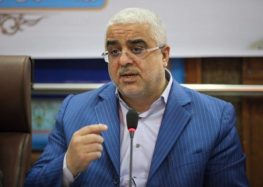Impunity Ad Infinitum

Deaths in Detention (Left to Right): Zahra Baniyaghoob, Oct. 2007; Zahra Kazemi, July 2003; Ebrahim Lotfallahi, January 2008.
The recent death of a student detainee in Iran brings into sharp focus the unlimited impunity enjoyed by security and intelligence forces. One of the most pervasive issues afflicting Iran’s justice system is the ability of interrogators, prison guards, and judiciary agents to—literally– get away with murder. This affliction only serves to encourage human rights abuses by state officials, giving them a signal that they need not worry about consequences of their actions including unjustified detentions, harsh interrogation techniques and torture of detainees.
Security forces arrested Ebrahim Lotfallahi, a university student in Sanandaj, capital of the Western province of Kurdistan, on January 6, 2008. The third Branch of Sanandaj’s Revolutionary Court had issued his arrest warrant. Lotfallahi was arrested as he exited the university after taking an exam. Nine days later, on January 15, the authorities notified Lotfallahi’s family of his death, claiming he committed suicide inside prison. But Lotfallahi’s family had visited him after his arrest and do not believe he could have committed suicide.
After notifying his family, intelligence officials buried Lotfallahi’s body without their permission at night time under the cover of darkness, not allowing his family to see his body. This further exasperated suspicions of foul play. If Lotfallahi committed suicide, there was no reason to hide his body from his family. His brother, Ismael Lotfallahi, told the Kurdish Organization for Human Rights, “We don’t believe my brother committed suicide, because he was in a good mental state. We want an autopsy to determine the cause of his death.”
According to the lawyer retained by Lotfalahi’s family, Saleh Nikbakht, not giving a dead prisoner’s body back to the family is unprecedented in Sanandaj and the authorities could have easily turned over the body to his family for burial.
The Judiciary’s spokesman, Alireza Jamshidi, reiterated during a press conference in Tehran on January 29 that Abdollahi committed suicide. He said the decision to order an autopsy rests with the judge in his case, referring the decision to investigate to the very same authorities who arrested and held Abdullahi in the first place. The Judiciary’s unwillingness to launch a credible and independent investigation is a glaring example of its inability to enforce due judicial process.
Perhaps the most shocking aspect of Lutfallahi’s case is the judge’s decision issued on February 9. The judge not only refused to allow for an autopsy, but announced that the intelligence officials in Kurdistan have filed charges against Lotfallahi’s family due to their reaction to the claims of his suicide. The judge’s decision is a harsh slap on the face of Lotfallahi’s family seeking the truth about their son’s death. Deprived of any due process, the judiciary and intelligence agents intimidate them into silence by bringing charges against them.
The problem of unlimited impunity increasingly erodes the credibility of Iran’s justice system. Lotfallahi’s death in custody is the second such case in the last four months. On October 12, 2007, morality police arrested Zahra Bani-Ameri and her fiancé in a public park in Hamedan. The police agents took them into custody for “immoral” behavior. Bani-Ameri, a 27 year old physician, was held in detention overnight. The next day, officials called Bani-Ameri’s family to inform them of her death, claiming she committed suicide. This news devastated her family who could not believe the official explanation given that they had talked to her by phone just 30 minutes before the time of her reported death.
Over the past few years, there have been several suspicious deaths of detainees and prisoners inside Iranian prisons, none of which have been properly investigated. In July 2003, the Iranian-Canadian photojournalist, Zahra Kazemi, died after she was arrested in front of Tehran’s Evin prison. Akbar Mohammadi, a student activist jailed for his political beliefs, died while on a hunger strike inside Evin prison in August 2006. A month later another political prisoner, Valiollah Feyz Mahdavi, also on a hunger strike, also died inside Evin. None of these cases has been conclusively investigated. In Kazemi’s case, a protracted judicial process, initiated only after intense international pressure, continues to this day without anyone being held responsible for her death.
In the cases of Mohammadi and Feyz Mahdavi, no investigations have been announced. Even if these two prisoners died due to their hunger strike, prison officials still bear responsibility under international law for failing to protect their health and safety.
The continuing and expanding impunity awarded to security, intelligence, and judiciary agents will only contribute to the worsening of rights violations. Iran’s Judiciary is ultimately responsible for failing to punish those responsible for the ill-treatment and even death of detainees.
The Judiciary’s bizarre and Kafkaesque response to Abdollahi’s death under detention, seeking to punish his family for demanding due process and justice, is yet another example of unlimited impunity afforded to state agents. The Judiciary must investigate Abdollahi’s and other deaths in custody through an independent investigation. As long as it refuses to do so, it will have no credibility inside or outside of Iran.



